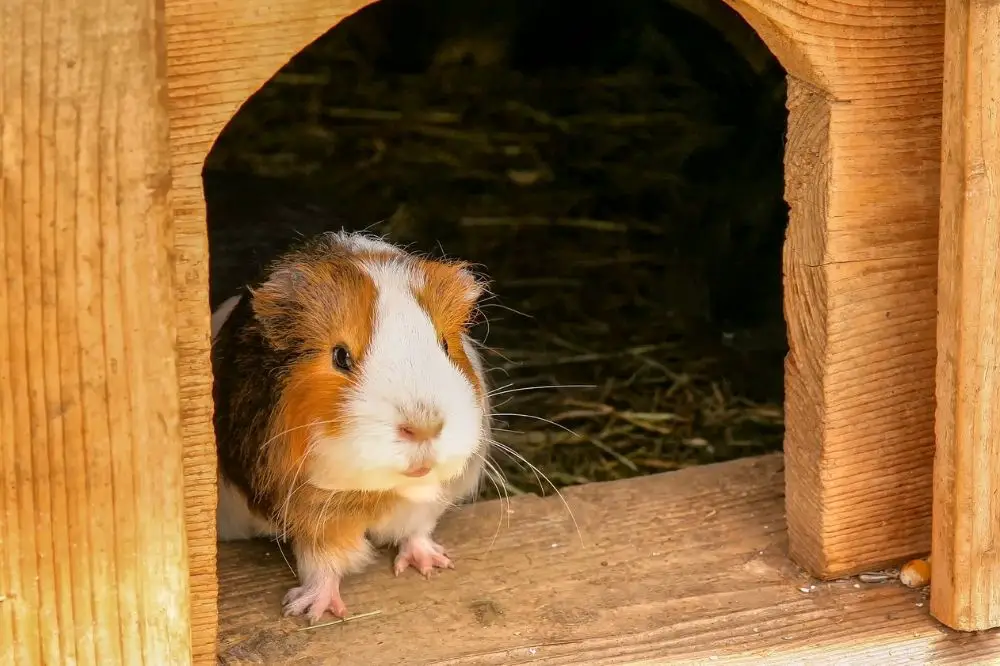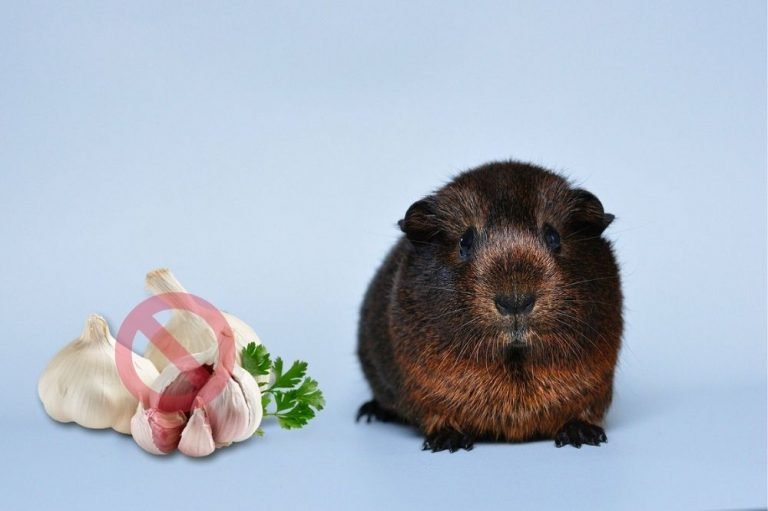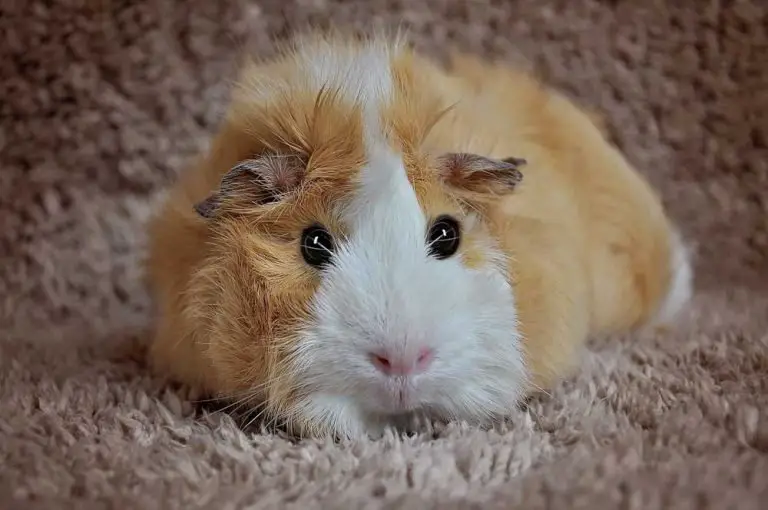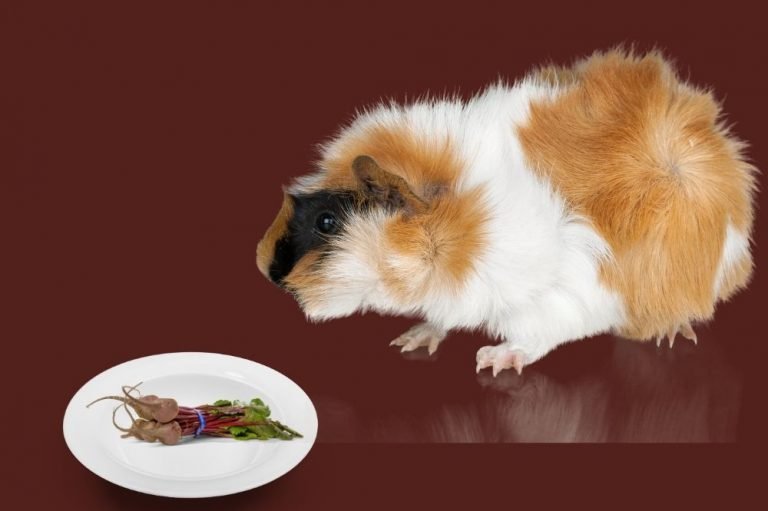What Does Normal Guinea Pig Urine Look Like?
Guinea pigs will use different sounds and body language to communicate their feelings. They usually get the need to urinate often so if you are holding your guinea pig or they are out of their cage, they will act in ways to show that they need to have a bathroom break.
For instance, if they begin fidgeting restlessly when you are holding them that is a sign that you should take them back to their cage. They may also nibble on your fingers and clothes to get your attention.
If you keep ignoring them and don’t let them go, they will pee or poop on you, and don’t say that they didn’t warn you. It’s advised that you hold your pet for period intervals of 15 minutes to allow for bathroom breaks.
So, what should their urine look like exactly? Can you observe it and know if something is bothering them? Let’s find out.
What does normal guinea pig urine look like?
Normal guinea pig urine is usually white in colour. However, guinea pigs will have urine of different colours ranging from red, yellow, orange, and brown. These varied colours do not always mean anything serious as they can be brought about by the type of food they eat and the colour pigments of the plant matter. Red urine for instance will not always mean that the urine has blood. It can be brought about by feeding broccoli, beetroots, and dandelions.
Why does my guinea pig have blood in their urine?
As stated, red urine will not always signify blood. Sometimes it could be their diet.
If you didn’t feed them any foods that would result in the red colour, ascertain if it’s blood by placing a white cloth where they normally pee. You can observe the colour of the cloth and also use it as a sample for your vet.
Blood in urine means that your guinea pig has health conditions like kidney disorders, issues with their reproductive parts and genitals, or bladder and kidney stones. You should see a vet right away when you notice this.
Do guinea pigs get UTIs?
Guinea pigs are prone to getting UTIs as their genitals are close to the ground which is where most bacteria breeds. UTIs are brought about by various factors including living in dirty environments.
You should always ensure that your guinea pig’s space is tidied and cleaned up to avoid breeding of bacteria that would bring about infections to the urinary tract.
Excess calcium in guinea pig diet
Calcium in high amounts is harmful to guinea pig health. If you are feeding your guinea pig foods high in calcium, they may have thick milky white urine that forms a gritty precipitate when it dries up.
High calcium amounts lead to the formation of calcium sludge which may accumulate in the bladder or kidneys bringing about stones. This condition is referred to as urolithiasis.
Causes of urinary diseases
Urinary diseases in guinea pigs are brought about by various factors with the major ones being dirty living environments and a high calcium diet.
Other factors are:
- Dehydration.
- Genes.
- Obesity.
- Inactivity.
- Urine retention.
- Cystitis.
Measures to take if your guinea pig develops urination problems
If your guinea pig has urination problems associated with UTIs or urinary diseases, they will show signs like:
- Pain and discomfort while urinating.
- They may squeak sharply to express their pain.
- Blood in the urine.
- A gritty precipitate is left behind after the urine dries up.
- Inability to urinate.
If you notice any of these signs, call a vet right away.
Treatments may include antibiotic therapy, diuresis, and surgery if it’s very serious.
Things you can do are:
- Increase their amount of water intake – this will keep them well hydrated. You can add some natural fruit juice without any added sugar to motivate their water consumption.
- Offer leafy greens – add leafy greens in their diet like dandelion greens, parsley, kales, and mustard greens.
- Reduce the amount of calcium intake – calcium is a major factor in urinary problems so you should reduce its intake as much as possible by changing their diet. Swap Alfalfa hay for Timothy hay because Alfalfa contains high amounts of calcium. Change the type of pellets you offer them too as some may have high calcium content.
- Let them out to exercise – exercise and high activity levels in your pet will be very helpful.
- Discontinue the use of supplements and some medication – seek a vet’s advice before discontinuation.
How to reduce guinea pig urine smell
Just like with humans and other animals, guinea pig urine contains ammonia which produces a pungent smell.
Sometimes it can be excessively strong, like if they are having an infection, and it may result in an odour that’s hard to get rid of.
To reduce this, you can;
Litter train your pet
Litter training enables your guinea pig to pee or poo in a designated box that is easier to clean and it reduces the waste in the cage.
Figure out where your guinea pig likes to use the bathroom and place their litter box there. Reward them with a treat whenever they use it appropriately.
Clean often
If your guinea pig is litter trained, clean out their box often to avoid buildup that is more stinky and harder to clean. If not litter trained, take out and change their bedding often.
Use white vinegar for the cleaning because it gets rid of odours, stains, and kills bacteria effectively.
Conclusion
Guinea pig urine is usually white in colour though it may change depending on their diet. Observe your pet to notice any irregularities in their urinating tendencies and urine colours.
If it has something to do with the plant pigment of the foods you fed them then it’s okay. But if they have other signs like pain urinating they could be having a more serious condition that needs a vet’s help.
Always call a vet in case of any problems and ensure that you are offering them enough water at all times.







